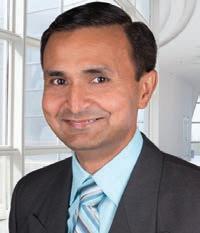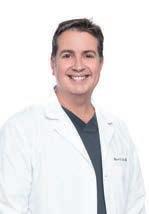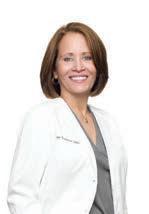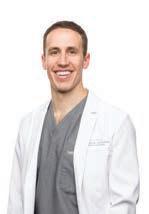















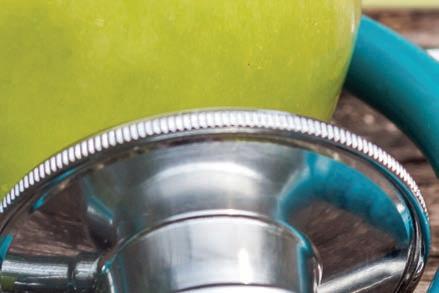
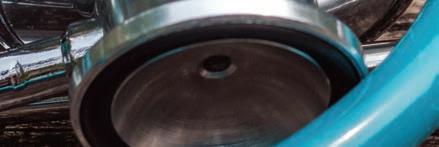
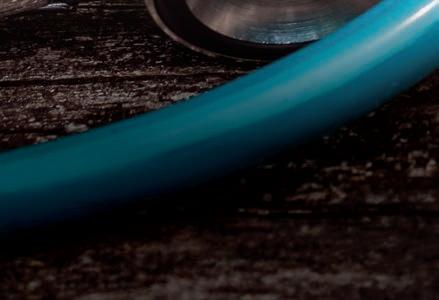
























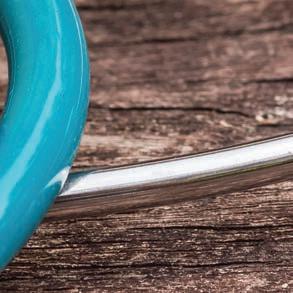
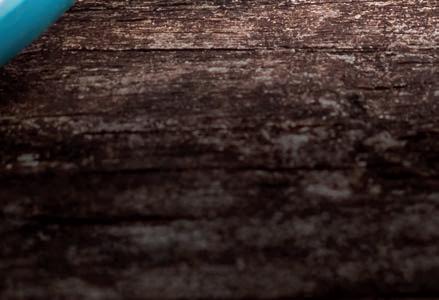

Welcome to the trusted companion to all things medical in Florida’s Capital City. Whether you’re new to the area or a longtime resident, this comprehensive publication connects you with the care you need, when you need it. Inside, you’ll find timely health and wellness articles on community-based care, heat stroke, flu season, and how to navigate an emergency room visit— all with expert insight from Tallahassee’s own doctors and caregivers. As always, our convenient alphabetical listings organized by specialty o er easy access to trusted providers and specialists across the region. From prevention to urgent care, this guide is your go-to resource for informed, confident health decisions. Your








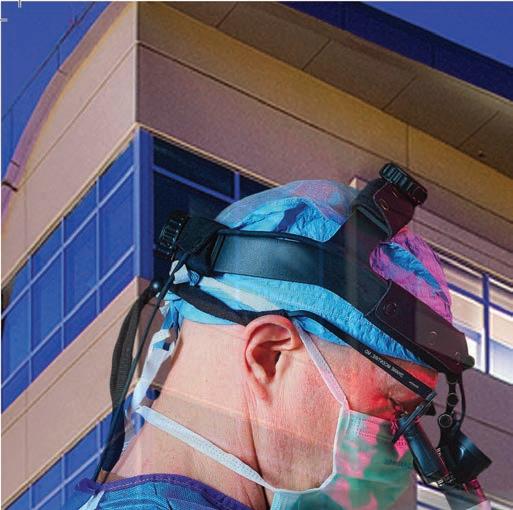
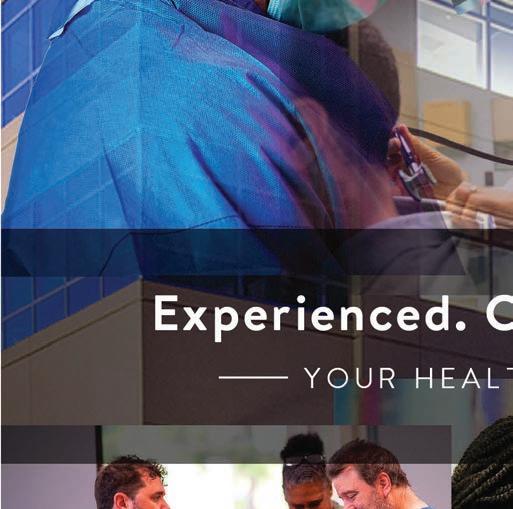
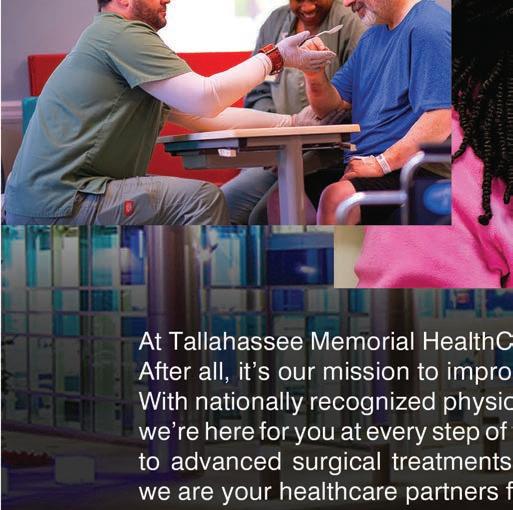

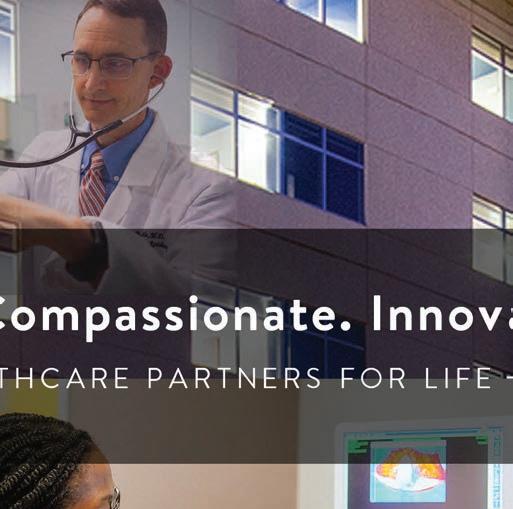
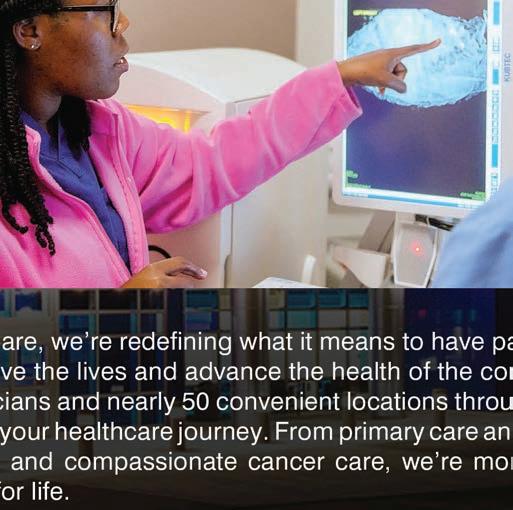

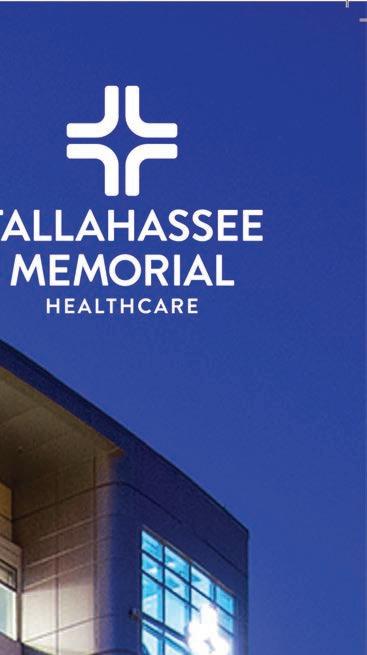
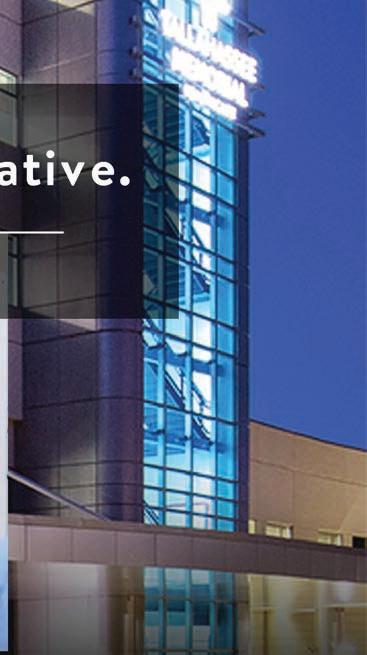



Florida State University College of Medicine is transforming health care across Florida
BY ZANDRA WOLFGRAM AND ROCHELLE KOFF
At FSU PrimaryHealth, based in southwest Tallahassee, students work with physicians on a hands-on basis in a real-world setting.

When Alma Littles, MD was in the second grade, her teacher told her she’d make a good doctor someday. At the time, the youngest of 12 children growing up in Quincy, Florida had never even met a physician.
“I didn’t know what that meant,” Littles recalled. That seed of encouragement took root and flourished. Littles went on to become a family physician in her rural hometown, treating patients in a community where doctors were few and far between. Today, she serves as interim dean of the Florida State University College of Medicine, where the mission reflects her personal journey—to produce physicians dedicated to patient-centered care in underserved communities.
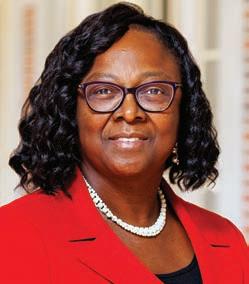

The FSU College of Medicine was founded in 2000, making it the first new medical school to open in the U.S. in nearly two decades. Many in the medical establishment argued that enough doctors already existed. But local advocates in Florida knew the truth: Rural and underserved areas were already grappling with critical shortages.
“FSU was a pioneer,” says Dean Watson, MD, vice president and chief integration officer for Tallahassee Memorial HealthCare. “Once FSU went through the process, numerous medical schools followed.” Today, with the country facing a projected shortage of up to 124,000 physicians in the next decade—including as many as 48,000 in primary care—the FSU College of Medicine’s model is now considered ahead of its time.
From the beginning, FSU’s mission was crystal clear: Train compassionate, community-minded, and culturally competent physicians who would serve where they’re needed most.
And the school has the numbers to prove its success.
The Florida State University College of Medicine ranks in the 96th and in the 87th percentiles for both family medicine training and graduates practicing in primary care, and the 84th percentile for graduates who remain in Florida to practice, according to the Association of American Medical Colleges.
Meanwhile, FSU’s 2023 Annual Report highlights that 70 percent of its M.D. alumni are currently practicing in Florida, and 42 percent specialize in primary care—figures that exceed national averages. The college also stands out as a leading producer of African American and Hispanic medical graduates, reinforcing its commitment to increasing diversity and equity in health care across the state.
“We’re training doctors who will go where they’re needed most,” says Littles. “That’s how we change the health of a state.”
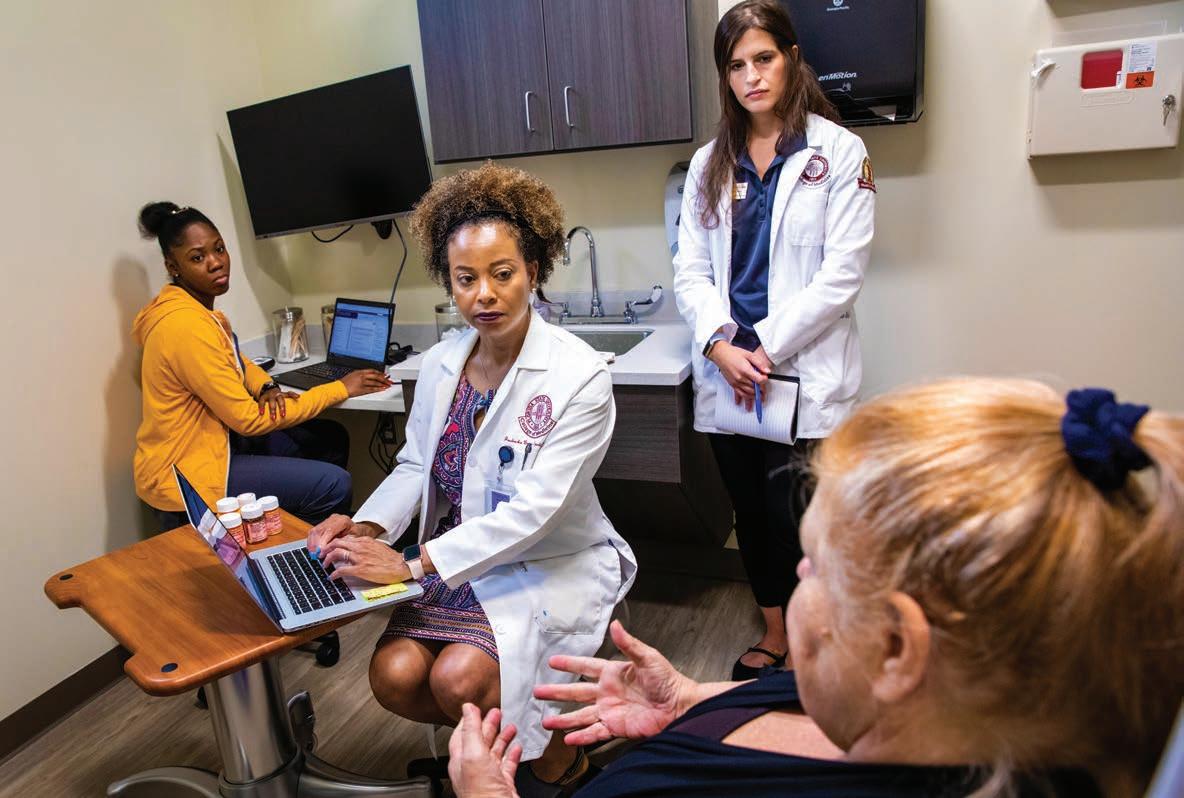
One powerful example of FSU’s impact is FSU PrimaryHealth, a clinic in southwest Tallahassee, just a block from Sabal Palm Elementary School, the city’s only community partnership school.
“This is one of the most poverty-stricken areas in the state,” says Shannon Davis, principal at Sabal Palm. “They’re in a prime area to serve families who are in great need of physical care.”
Davis recalled one child who was chronically ill and being raised by a struggling grandmother. Sabal Palm staff connected the family to FSU PrimaryHealth.
“He’s now there on a regular basis, and he’s happier and healthier,” she says. “All of a sudden, he has resources open to him that were not available to him in the past. Now, we’re seeing a different child.
“There are many other stories like that,” she adds.
The College of Medicine’s distributed model sends students into real-world clinics and hospitals across Florida, rather than concentrating them in a single academic hospital. Students train at regional campuses in cities like Daytona Beach, Sarasota, Fort Pierce, and Pensacola, often working alongside practicing physicians in private practices and community health centers.
In rural areas, the college’s Rural Medical Education (RMed) program prepares students to serve in low-resource communities. Clinical training takes place at the rural campus in Marianna, Florida, and many RMed graduates return to practice in areas similar to where they trained.
Other pipeline programs further reinforce the college’s community focus. SSTRIDE (Science Students Together Reaching Instructional Diversity & Excellence)
reaches more than 2,500 middle and high school students annually, many of whom are the first in their families to attend college. The Bridge to Clinical Medicine Program, offered in partnership with Florida A&M University, helps students from disadvantaged backgrounds transition to medical school, boasting a 97 percent graduation rate.
Littles has played an instrumental role in developing and sustaining the college’s mission.
“We were developing physicians who would practice personal and patientcentered care, focusing on populations of need,” she says. “I called it my personal, professional mission.”
Her commitment has earned her respect in medical and academic circles nationwide. She was recently named to the board of
“We were developing physicians who would practice personal and patient-centered care, focusing on populations of need. I called it my personal, professional mission.”
Alma Littles, MD

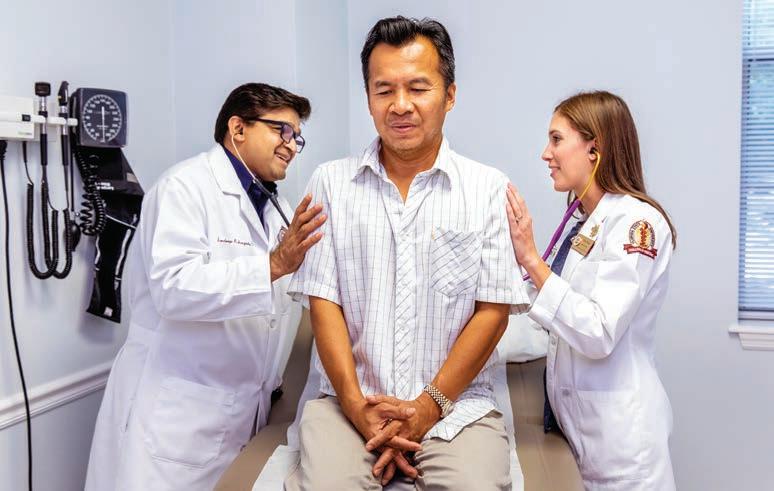
directors of the Association of American Medical Colleges.
Now leading the college as interim dean, Littles is guiding it into its next era while never losing sight of its founding vision.
The college is also expanding its reach through research and clinical development. In partnership with Tallahassee Memorial HealthCare and The St. Joe Company,
the school broke ground in 2023 on a new health care campus in Panama City Beach. The facility will serve as a hub for research, medical education, and clinical care throughout Northwest Florida. Research funding exceeded $15 million in 2023, with strong focus areas including aging, dementia, autism, and behavioral health. FSU’s centers of excellence—such as the Autism Institute and the Center on Better Health and Life for Underserved
TOP: Graduate students in the College of Medicine’s doctoral program in biomedical sciences, joined by medical students, use models of the human brain as teaching tools at the Tallahassee Science Festival at Kleman Plaza in October 2023.
BOTTOM: Sandeep Rahangdale, MD, dean of the Tallahassee Regional Campus, works with medical student Erika Turko and a patient. The FSU College of Medicine’s model is unique in that students spend their first two years of clinical education at the central campus in Tallahassee, then go to one of six regional campuses around the state for rotations in one-on-one training in various specialties.
Populations—continue to generate meaningful, community-based data that inform public policy and improve care.
As the FSU College of Medicine celebrates its 25th anniversary in 2025, its achievements are a testament to the power of missiondriven work.
“Our success is measured not just in board scores or rankings but in the health of the communities we serve,” Littles says.
Back in Quincy, a young girl once dreamed of a future she didn’t yet understand. Today, she leads a medical school that helps students just like her— bright, determined, and called to care— transform entire communities through the power of medicine.

Understanding and preventing heat stroke in Florida’s capital city
BY PAISLEY ROSE



In Florida’s capital city, summer heat isn’t just uncomfortable—it can be dangerous. “Heat stroke is the most severe form of heat-related illness,” says Joseph Zarraga, MD, emergency physician and assistant medical director at HCA Florida Capital Hospital in Tallahassee. A health care provider for seven years, Zarraga sees firsthand how quickly heat can overwhelm the body. “It’s important to know the signs before it’s too late.”
Dr. Joseph Zarraga
Heat-related illnesses fall on a spectrum—from mild heat cramps to deadly heat stroke. “While anyone can suffer from heat exhaustion, certain people are at higher risk,” Zarraga explains. “That includes the very young, the elderly, those with chronic medical conditions like high blood pressure or diabetes, and even young, healthy athletes or laborers exposed to intense heat for long periods.”
And yes, it can happen any time of year. “You can get heat stroke even in the winter if the environment or your body gets overheated. It’s not just about the thermometer; it’s about how your body responds,” he says.
What does heat stroke look like? According to Zarraga, one major clue is confusion or altered mental status. “If someone is disoriented, dizzy, or loses consciousness— and especially if their temperature is over 104 degrees—that’s a medical emergency.”
Other earlier signs can include excess sweating, fatigue, headache, and lightheadedness. “The most important thing is to listen to your body. If you’re feeling bad, get out of the heat and start cooling down.”
If you suspect heat stroke, act fast. “Call 911, get the person into a cooler environment, and begin cooling their body with cold water, fans, or ice packs. But skip the Tylenol—heat stroke isn’t a fever, and those medications won’t help,” says Zarraga.
In the emergency department, cooling is often just as low-tech. “We use ice baths, evaporative cooling with fans and mist, and cooled IV fluids. There are new technologies like temperature-regulating suits, but basic methods are still highly effective,” he adds.
New to Tallahassee? Be careful. “People moving here often underestimate the climate,” says Zarraga. “Humidity plays a huge role in how your body copes with heat. Acclimating slowly and avoiding strenuous outdoor activity during peak hours is key.”
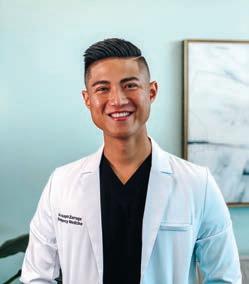
Hydration, shade, and common sense are your best defenses. “Shade can make it feel 10 degrees cooler, and that can be the difference between safe and dangerous,” Zarraga notes. “And if you’re thirsty, you’re already behind on hydration—so drink water regularly, especially during outdoor activities.”
With Florida’s long, hot summers, knowing how to spot and stop heat stroke could save a life—maybe even your own.
STAY COOL WITH THESE HEAT STROKE PREVENTION TIPS
Hydrate early and often. Don’t wait until you’re thirsty. Dress for the weather. Lightweight, breathable fabrics help your body regulate heat.
Seek shade. Especially during the hottest part of the day (10 a.m.–4 p.m.).
Avoid strenuous activity. Limit outdoor exertion when temperatures top 90 degrees Fahrenheit. Listen to your body.
Fatigue,dizziness, and confusion are early warning signs.
Never leave children or pets in a parked car. Even for a few minutes.
Welcome to Westminster Oaks where living well meets living beautifully. With villa homes and spacious apartments with park, forest, and garden views, no matter what choice you make, you’ll fall in love.
Thrive in a well-being focused community. Walk or bike 140 acres of stunning grounds with towering live oaks, azalea, and nature trails. Best of all, enjoy community and incomparable peace of mind.
• Maintenance-free, independent living
• Delicious, chef-prepared dining
• Exceptional amenities including putting green, pool, tennis and pickleball, Maguire Center for Lifelong Learning
• Life Plan continuum for the future
Call (877) 311-8316 to learn more or book your personal tour today!
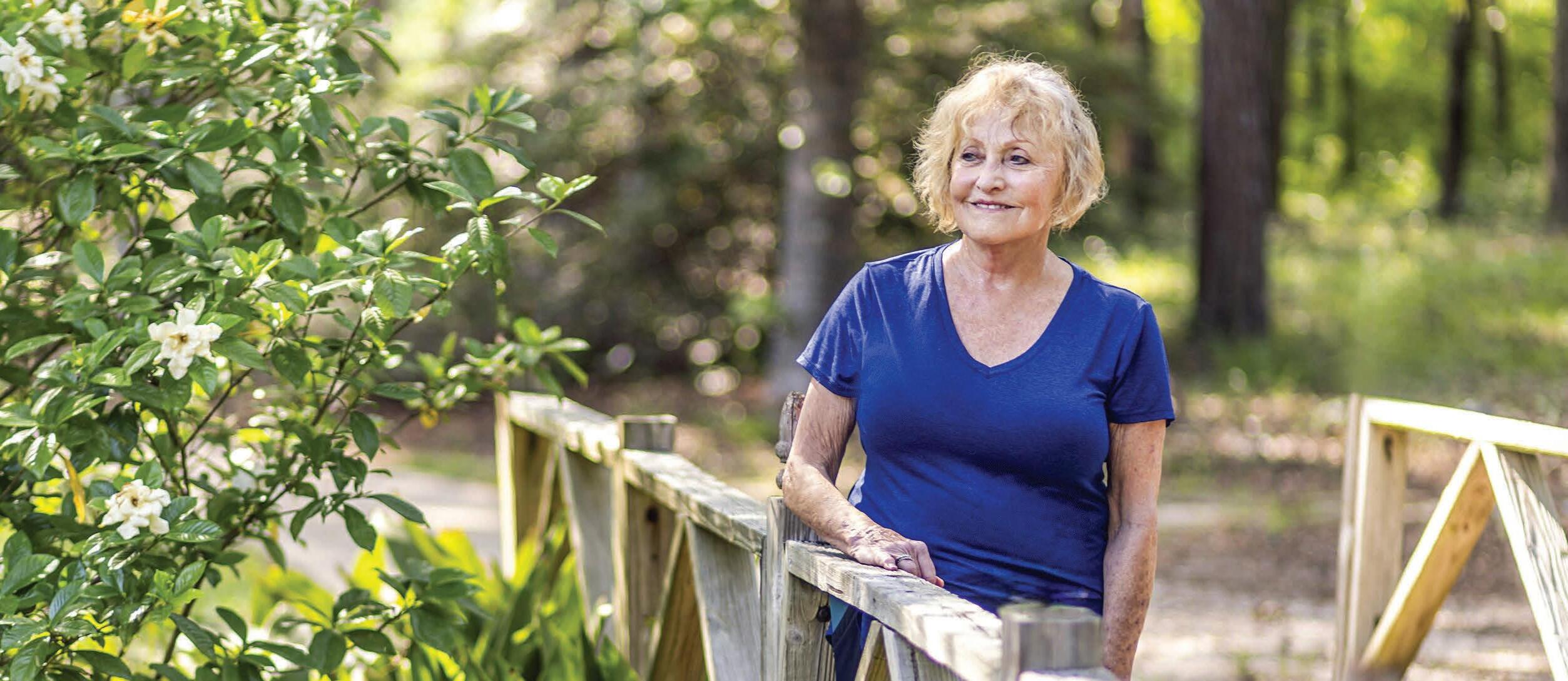
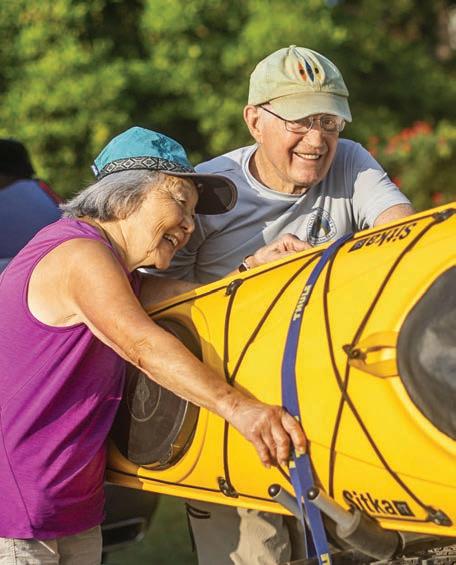
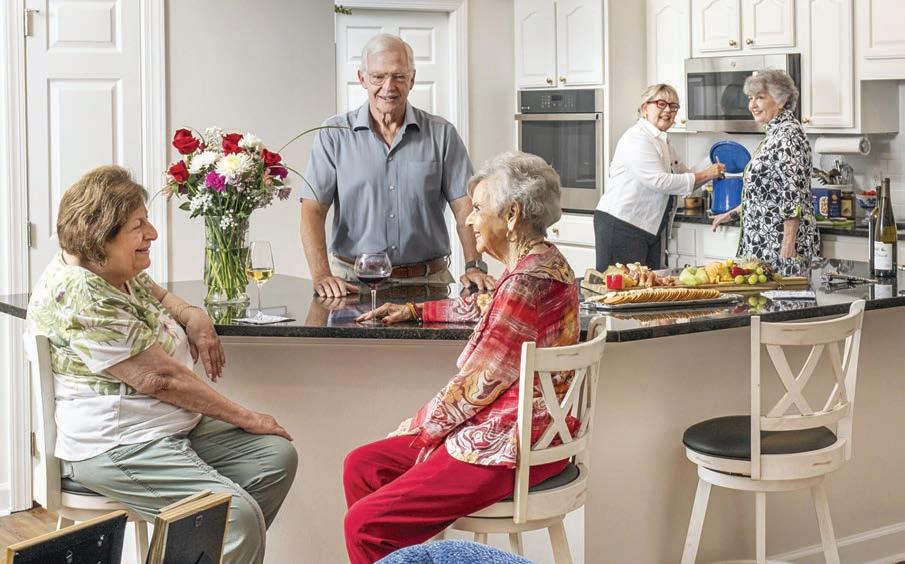



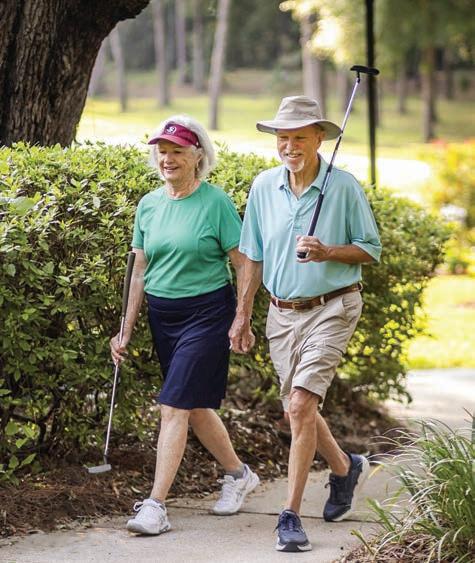
Know the signs, the risks, and the remedies for a healthier cold and flu season
BY ZANDRA WOLFGRAM

When the calendar flips to October, it brings more than just cooler temperatures to Tallahassee—it signals the start of cold and flu season. Lasting through May, with peak activity between December and February, this annual health challenge affects individuals of all ages and can be especially difficult to distinguish from another lingering viral threat: COVID-19.
John Streacker, MD, medical director of Tallahassee Memorial Urgent Care Centers, guides residents through the ups and downs of seasonal illness daily. “It’s important to understand the differences in symptoms,” Streacker says. “That helps you respond more appropriately and recover more quickly.”
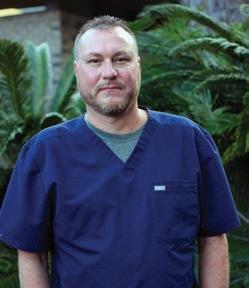
Cold symptoms typically include congestion, sneezing, runny nose, sore throat, headache, and sometimes a mild fever.
The flu hits harder with sudden high fever, chills, muscle aches, dry cough, and fatigue. COVID-19 symptoms often mirror the flu but frequently involve loss of taste or smell and prolonged fatigue. According to Streacker, definitive diagnosis often requires testing. “We have pointof-care testing at our urgent care centers, and at-home kits are widely available now, too,” he says.
Knowing when it’s safe to rejoin society is also critical.
“Generally, you should be fever-free for 24 hours without medication, and your symptoms should be improving,” said Streacker. “After that, you still want to take precautions—wear a mask, wash your hands, and keep some distance for at least five more days.”
Most viral infections like cold, flu, and COVID-19 can be treated with supportive care. “Rest, hydration, and over-thecounter medicines like decongestants, Tylenol, and antiinflammatories are the first line of defense,” Streacker advised. For flu, antiviral medications can lessen the severity and duration if taken early. COVID-19 may also be treated with antiviral or antibody therapies, especially for high-risk individuals.
Streacker emphasized the importance of understanding which treatments are helpful—and which are not.
“Antibiotics don’t work for viral infections,” he said. “That’s a common misconception. Bacterial infections like strep throat or pneumonia may require antibiotics, but your average cold won’t.”
Nasal sprays and decongestants can be helpful, but use with caution. “Nasal decongestants should only be used for up to three days, or you risk rebound congestion,” Streacker explained. “And decongestants in general aren’t for everyone. People with heart conditions, hypertension, or glaucoma should check with their doctor first.”
Fever can often be treated at home, but there are limits.
“Infants younger than three months with a temperature above 100.4, adults with fevers over 103, or persistent high fever in children all warrant a medical visit,” he said. “In older adults, even a mild fever—or signs like confusion or lethargy—can be cause for concern.”
The best protection may still be prevention. Streacker strongly recommends annual flu shots, as well as RSV vaccines for infants, young children, and at-risk adults. “These vaccines won’t just lower your chance of getting sick, they can reduce the severity of illness and help keep people out of the hospital,” he says.
Tallahassee Memorial HealthCare operates three urgent care centers across Leon County and recently opened a new location in Panama City Beach. “We’re here for the community and ready to treat patients at every stage of the season,” said Streacker.
In Tallahassee, staying healthy through the cold and flu season means knowing the signs, taking preventive steps, and acting quickly when symptoms strike.
Know your symptoms
Colds come on slowly with mild symptoms. Flu hits fast with fever and fatigue. COVID may involve loss of taste/smell.
Don’t guess—test
At-home or urgent care testing can help you identify the virus and respond accordingly.
Treat symptoms carefully
Use decongestants and anti-inflammatories as directed. Don’t assume you need antibiotics.
Take fevers seriously
Watch for high or persistent fevers, especially in infants, seniors, or immunocompromised individuals.
Prevention is key
Get your annual flu shot. Consider RSV and COVID boosters, especially if you’re high risk.
Stay home until safe
Wait at least 24 hours after you’re fever-free—without meds—and continue to mask up indoors for five days.
An ER doctor’s advice for what to bring, what to ask, and how to prepare BY PAISLEY ROSE
When faced with a medical emergency, stress and uncertainty can cloud judgment.
That’s why it pays to be prepared before stepping into the emergency room.

“Patients often arrive scared, confused, and unsure of what to expect,” says Joseph Zarraga, MD, an emergency physician and assistant medical director at HCA Florida Capital Hospital in Tallahassee. “The more prepared and informed you are, the smoother your visit will be.”
Bring a list of current medications, allergies, and key medical history. Include the name and contact of your primary care provider, as well as your ID and insurance card. “Even small details help us care for you more safely and efficiently,” Zarraga explains.
Don’t be afraid to speak up. Dr. Zarraga recommends asking:
• What are you diagnosing—or ruling out?
• What tests are being ordered, and why?
• How long will the tests or treatment take?
• What will happen next—am I being admitted or discharged?
• What symptoms should prompt me to return?
Also, be sure to request a visit summary, and ask if you need a prescription or followup referral. “Patients should always leave with a clear plan and someone to contact if concerns arise after discharge,” he adds.
“Be honest and specific about your symptoms. Ask questions if you’re unsure,” says Zarraga. “And don’t be embarrassed to repeat what you’ve been told—it’s a good way to confirm understanding.”
Emergency rooms are fast-paced, but providers want you to leave feeling confident about your care. With a little preparation and communication, your ER visit can be a more positive and productive experience.
PRO TIPS FROM DR. ZARRAGA:
Write down symptoms and a timeline before arriving.
Use your smartphone to store a list of medications.
Keep your insurance card and ID in one easy-to-reach location.
Bring someone with you for support, if possible.
Stay calm, and be as clear and concise as possible when speaking with staff.
















































Essential services and resources for your safety and well-being
Leon County Emergency Medical Services (EMS) (850) 606-2100
Non-emergency (850) 606-5808
Call or text 911 If you are in a life-threatening situation or need immediate assistance from the police, fire department or ambulance.
HCA Florida Capital Hospital
2626 Capital Medical Blvd. (850) 325-5000 hcafloridahealthcare.com
Encompass Health Rehabilitation Hospital of Tallahassee 1675 Riggins Road (850) 656-4800
Select Specialty Hospital 1554 Surgeons Drive (850) 219-6800
Tallahassee Memorial HealthCare 1300 Miccosukee Road (850) 431-1155 tmh.org
Urgent Care Center at TMH
1541 Medical Drive (850) 431-7816
3900 Esplanade Way (850) 431-3868
410 W. Tennessee Street (850) 431-9950
Southwood ER
2674 Capital Circle SE (850) 404-5800
Patients First
1690 N. Monroe Street (850) 385-2222
505 Appleyard Drive (850) 576-8988
3258 N. Monroe Street . (850) 562-2010
3446 Thomasville Road (850) 386-2266
1660 W. Tennessee Street (850) 359-9307
1705 E. Mahan Drive (850) 877-7164 3652 Mahan Drive (850) 329-8429
North Florida Women’s Services
2412 W. Plaza Drive (850) 877-3183 northfloridawomenshealth.com
Women’s Clinic
1605 E. Plaza Drive, Ste. 103 (850) 656-9177 womensclinictallahassee.com
Planned Parenthood
2618 W. Tennessee Street (850) 574-7455 plannedparenthood.org/planned-parenthood-southeast-north-florida
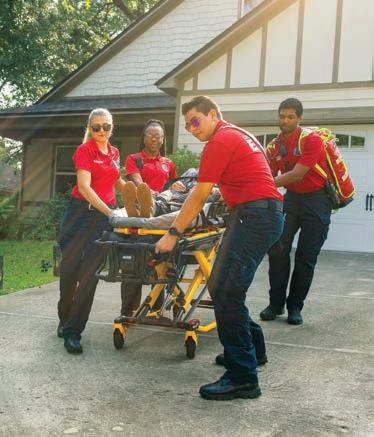
Emergency (police, ambulance, paramedics, fire and rescue) 911
American Red Cross
1115 Easterwood Drive (850) 878-6080
Allied Veterinary Emergency Hospital (open 24/7)
2324 Centerville Road (850) 222-0123
Florida Poison Information Center For emergencies (800) 222-1222 Direct line to Jacksonville (904) 244-4465
Leon County Emergency Management (for evacuation assistance during a natural disaster) (850) 488-5921
Refuge House (for victims of spousal abuse and sexual assault, open 24/7)
24-hour hotline (850) 681-2111
Administrative O ce (850) 922-6062
Outreach O ce ....................................... (850) 922-5570
HCA Florida Capital Hospital
2626 Capital Medical Blvd. (850) 325-5000
Tallahassee Memorial HealthCare
1300 Miccosukee Road (850) 431-1155
2-1-1 Big Bend
(telephone counseling and referral service) 211
City utilities services (850) 891-4968
Bus schedule information (850) 891-5200
Call Before You Dig hotline 811
Drainage problems (850) 891-5300
Energy audits (850) 891-4968
Garbage, trash and recycling services (850) 606-1800
Parks, Recreation and Neighborhood A airs Department (850) 891-3866
Leon County Parks and Recreation Department (850) 606-1470
Signal and sign repairs (850) 891-5355
Tallahassee Police Department
Chief Lawrence Revell
234 E. 7th Avenue (850) 891-4200
Crime Stoppers (850) 574-8477 or (800) 577-TIPS
Duty O ce (24 hours) (850) 891-4387
Leon County Sheri ’s O ce
Sheri Walt McNeil
2825 Municipal Way (850) 606-3300
Crime Prevention and Resources (850) 606-3332
Florida A&M University Police Department
Chief Audrey Alexander
2400 Althea Gibson Way
POM Bldg. A, Ste. 128 (850) 599-3256
Florida State University Police Department
Chief J. Trumbower
830 W. Je erson Street (850) 644-1234
Tallahassee Community College
Campus Police Department
Chief Sean McGovern
444 Appleyard Drive (850) 201-6100
Airport Police
3300 Capital Circle SW (850) 891-7506


























































BY ZANDRA WOLFGRAM
BREATHE
Try simple breathing exercises to calm
MOVE
Take a walk, or do light exercise to release tension.
CONNECT
Call a friend, join a group, or volunteer.
UNPLUG
Take breaks from screens and news.
SLEEP
Prioritize 7-9 hours of quality rest.
EAT WELL

A balanced diet supports brain function and mood.
SEEK HELP Don’t wait until things spiral.
In our fast-paced lives, stress has become an unavoidable companion. But what exactly is stress, how does it impact us, and what can we do about it? Two Tallahassee-based mental health experts—Heather Lincicome, LCSW, FACHE, and Jeffrey Ferraro, MD—help demystify the experience of stress and offer ways to cope with it more effectively.
“Stress is our mind and body’s natural reaction to perceived dangers, threats, or challenges,” says Lincicome, behavioral health service line administrator at Tallahassee Memorial HealthCare and chief liaison officer at Apalachee Center, Inc. With 17 years of experience in behavioral health, she notes that stress isn’t always harmful. “In moderation, it can be useful for surviving dangerous situations and navigating life’s pressures.”
Ferraro, medical director of Mental Health & Wellness Programs at HCA Florida Capital Hospital and program director of the University of Central Florida/HCA Psychiatry Residency, echoes this. “Stress is your body’s reaction to challenging situations—or even the perception of one,” says Ferraro, who has worked in health care for 20 years. “The fight-or-flight response is normal but can become problematic when it’s constantly triggered.”
While acute stress is temporary, chronic stress is more dangerous. “Chronic stress does not allow the body to return to a normal state,” Lincicome explained. “It can lead to physical and mental health issues because of the overproduction of stress hormones.”
Ferraro described burnout as a key sign of chronic stress. “It’s a state of emotional, mental, or physical exhaustion,” he says. “It can impair relationships, work performance, and overall well-being.”
In today’s constantly connected world, stress has new fuel: the 24/7 barrage of negative news and social media. “We absorb a lot of negative energy just by having access to constant data,” Ferraro says. “Even people not prone to anxiety can struggle.”
But technology also offers solutions. Wearables that monitor heart rate or sleep can signal elevated stress levels, and mental health apps offer guided meditation and mindfulness. “While apps are promising, they shouldn’t replace professional therapy,” Ferraro cautioned.
Both experts agree that managing stress requires a holistic approach. “It’s about taking care of your mind and your body,” says Ferraro. “That means sleep, exercise, limiting alcohol, and being outdoors.”
Lincicome added that self-care and healthy coping skills are essential: “Positive coping strategies enhance connectedness and problem-solving.”
Therapies like biofeedback, breathing exercises, and guided imagery can also help. “There’s no one-size-fits-all approach,” Lincicome says.
Knowing when to seek professional help is critical. “If stress leads to functional impairment—like poor performance at work or withdrawal from relationships—it’s time to talk to a therapist,” says Ferraro.
He also encourages patients to first confide in someone they trust. “The worst thing you can do is suffer in silence,” he says. “Talk to a friend or loved one. If things don’t improve, seek professional help.”
“Stress is a universal part of the human condition,” says Ferraro. “A good life isn’t one without stress—it’s one where you learn to adapt.”
Lincicome adds that awareness is key. “Being able to recognize your stress levels and respond with healthy strategies is the best way to stay balanced.”
With the right tools, resources, and support, stress doesn’t have to rule your life—it can even become an opportunity for growth.
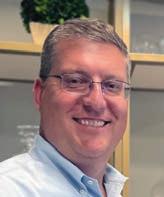
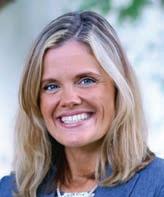

AESTHETICS & REGENERATIVE MEDICINE
Square One Aesthetics & Wellness
TIMOTHY WALKER, MD
863 East Park Avenue
Tallahassee, FL 32301 (850) 765-9923
SquareOneAesthetics.com
HANNAH WALKER, DNP, MSN, RN, FNP-BC 863 East Park Avenue Tallahassee, FL 32301 (850) 765-9923
SquareOneAesthetics.com
Integrity Spine & Wellness
BENJAMIN LUNN, DC 1535 Killearn Center Blvd., Suite C6
Tallahassee, Florida 32309 (448) 209-3417
IntegritySpineTLH.com
DENTISTRY
Bastien Dental
RICHARD JP BASTIEN, DMD 1433 Piedmont Drive East Tallahassee, FL 32308 (850) 425-1300
BastienDentalCare.com
LAUREN WEIR, DMD 1433 Piedmont Drive East Tallahassee, FL 32308 (850) 425-1300
BastienDentalCare.com
W. HARRISON MILLER, DMD 1433 Piedmont Drive East Tallahassee, FL 32308 (850) 425-1300
BastienDentalCare.com
James Walton III & Blake Garfinkel
JAMES WALTON III 1280 Timberlane Road Tallahassee, FL 32312 (850) 893-2136
TimberlaneSmiles.com
BLAKE GARFINKEL 1280 Timberlane Road Tallahassee, FL 32312 (850) 893-2136
TimberlaneSmiles.com
Tallahassee Dental
Associates (Smiles by Beck & Bailey)
JULIE BAILEY, DMD
2929 Capital Medical Boulevard Tallahassee, FL 32308 (850) 656-2636
SmilesByBeck.com
BRIAN BECK, DMD, MS 2929 Capital Medical Boulevard Tallahassee, FL 32308 (850) 656-2636
SmilesByBeck.com
HUNTER BRANTLEY, DMD, MS 2929 Capital Medical Boulevard Tallahassee, FL 32308 (850) 656-2636
SmilesByBeck.com


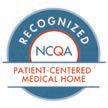

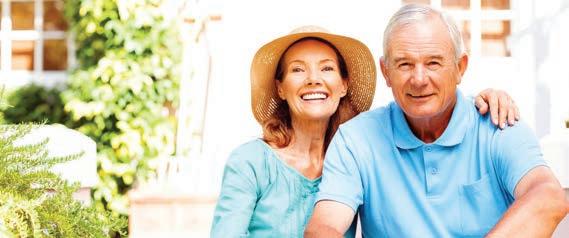






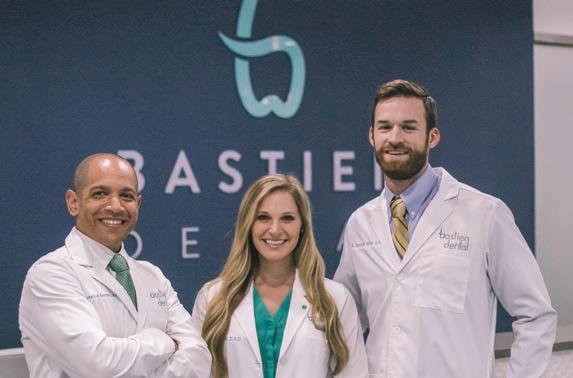

WILLIAM A. TYRE, DMD
2929 Capital Medical Boulevard Tallahassee, FL 32308 (850) 656-2636
SmilesByBeck.com
DENTISTRYPERIODONTICS
Periodontal Associates of North Florida
WALTER E. COLÒN II, DMD, MS
2160 Capital Circle NE, Suite 100 Tallahassee, FL 32308 (850) 562-6111 TallahasseePerio.com
AIXA GUZMÀN, DMD
2160 Capital Circle NE, Suite 100 Tallahassee, FL 32308 (850) 562-6111 TallahasseePerio.com
JAKE ZELLNER, DMD, MS
2160 Capital Circle NE, Suite 100, Tallahassee, FL 32308 (850) 562-6111
TallahasseePerio.com
Eye Center South
JOHN T. BELL, MD
1905 Capital Circle NE
Tallahassee, FL 32541 (850) 222-3937
EyeCenterSouth.net/locations/ tallahassee-fl
Eye Associates of North Florida
VIET BUI, MD
2020 Fleischmann Road
Tallahassee, FL 32308 (850) 878-6161
EyesNF.com
JERRY FORD, MD
2020 Fleischmann Road Tallahassee, FL 32308 (850) 878-6161
EyesNF.com
FANG SARAH KO, MD
2020 Fleischmann Road Tallahassee, FL 32308 (850) 878-6161
EyesNF.com
DEANNA LOUIE, MD
2020 Fleischmann Road Tallahassee, FL 32308 (850) 878-6161
EyesNF.com
TONY WEAVER, MD
2020 Fleischmann Road
Tallahassee, FL 32308 (850) 878-6161
EyesNF.com
OPTOMETRY
AMY RUZICKA, OD
2020 Fleischmann Road
Tallahassee, FL 32308 (850) 878-6161
EyesNF.com
ELIZABETH STRICKLAND, OD
2020 Fleischmann Road
Tallahassee, FL 32308 (850) 878-6161
EyesNF.com
JOSHUA TRAFTON, OD
2020 Fleischmann Road
Tallahassee, FL 32308 (850) 878-6161
EyesNF.com
BRIAN WOOD, OD
2020 Fleischmann Road
Tallahassee, FL 32308 (850) 878-6161
EyesNF.com
ONCOLOGY AND HEMATOLOGY
Florida Cancer Specialists & Research Institute Tallahassee Cancer Center
VIRALKUMAR BHANDERI, MD 2351 Phillips Road
Tallahassee, FL 32308 (850) 877-8166
FLCancer.com/Tallahassee
TIEN DO, MD 2351 Phillips Road
Tallahassee, FL 32308 (850) 877-8166
FLCancer.com/Tallahassee
PARESH PATEL, MD
2351 Phillips Road
Tallahassee, FL 32308 (850) 877-8166
FLCancer.com/Tallahassee
North Florida Pediatrics
SARAH M. ALVAREZ, MD 2255 Killearn Center Blvd., Suite 100
Tallahassee, FL 32309 (850) 877-1162
NorthFloridaPeds.com
ANNA T. KOEPPEL, MD
2255 Killearn Center Blvd., Suite 100
Tallahassee, FL 32309 (850) 877-1162
NorthFloridaPeds.com
MACI MCDERMOTT, MD 2255 Killearn Center Blvd., Suite 100
Tallahassee, FL 32309 (850) 877-1162
NorthFloridaPeds.com
SCOTT NELSON, MD 2255 Killearn Center Blvd., Suite 100
Tallahassee, FL 32309 (850) 877-1162
NorthFloridaPeds.com
CAULLEY SOTO, MD
2255 Killearn Center Blvd., Suite 100
Tallahassee, FL 32309 (850) 877-1162
NorthFloridaPeds.com
PERFORMANCE & LONGEVITY
Bluewater Vitality
ANNIE SMELT, FNP-C 2557 Barrington Circle, Suite 1 Tallahassee, FL 32308 (850) 808-1007
BlueWaterVitality.com
PLASTIC SURGERY
Tallahassee Plastic Surgery
ALFREDO A. PAREDES JR. MD 2452 Mahan Drive, Suite 101
Tallahassee, FL 32308 (850) 877-2126
TLHPlasticSurgery.com


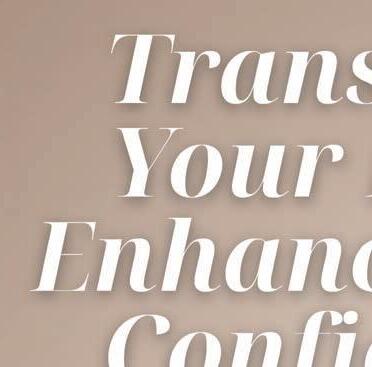

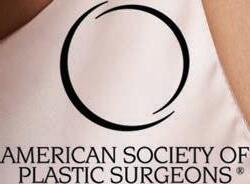




LARRY HARPER, MD, FACS
2452 Mahan Drive, Suite 101 Tallahassee, FL 32308 (850) 877-2126
TLHPlasticSurgery.com
JEFFREY M. RAWLINGS, MD, FACS
2452 Mahan Drive, Suite 101 Tallahassee, FL 32308 (850) 877-2126
TLHPlasticSurgery.com
PODIATRIC MEDICINE/FOOT & ANKLE SURGERY
Tallahassee Podiatry Associates Foot & Ankle Center
GEORGE N. MERRITT, DPM, MS 1866 Buford Blvd., Tallahassee, FL 32308 (850) 878-6998
TLHpodiatry.com
4th annual Fall open house thursday, sept 18 4:00-7:30pm
RUSSELL W. ROWAN, DPM, MS 1866 Buford Blvd., Tallahassee, FL 32308 (850) 878-6998
TLHpodiatry.com
BRYAN A. SPOONER, DPM 1866 Buford Blvd. Tallahassee, FL 32308 (850) 878-6998
TLHpodiatry.com
JOSHUA A. NICHOLS, DPM 1866 Buford Blvd. Tallahassee, FL 32308 (850) 878-6998
TLHpodiatry.com
MARC A. ALVAREZ, DPM 1866 Buford Blvd. Tallahassee, FL 32308 (850) 878-6998
TLHpodiatry.com
RANDY WILLIAMS, C.PED, CO, LO 1866 Buford Blvd. Tallahassee, FL 32308 (850) 878-6998
TLHpodiatry.com
VASCULAR CARE
The Vein Institute
ROBERT S. BRUMBERT, DO, FACOS 2623 Centennial Blvd., Suite 102 Tallahassee, FL 32308 (850) 531-VEIN (8346) TVIFL.com
AARON W. HAYSON, MD, RVPI 2623 Centennial Blvd., Suite 102
Tallahassee, FL 32308 (850) 531-VEIN (8346) TVIFL.com


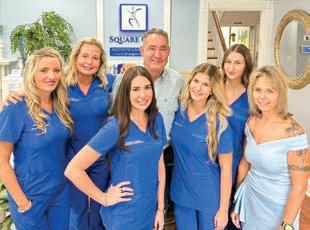
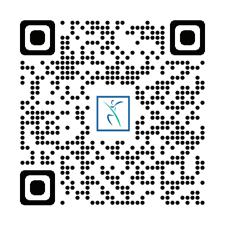
LAWRENCE D. KAELIN, MD, FACS 2623 Centennial Blvd., Suite 102
Tallahassee, FL 32308 (850) 531-VEIN (8346) TVIFL.com
MEGAN I. MARCH, MD, RPVI, FSVS 2623 Centennial Blvd., Suite 102
Tallahassee, FL 32308 (850) 531-VEIN (8346) TVIFL.com
Westminster Oaks 4449 Meandering Way Tallahassee, FL 32308 (850) 878-1136 WestminsterOaksFL.org

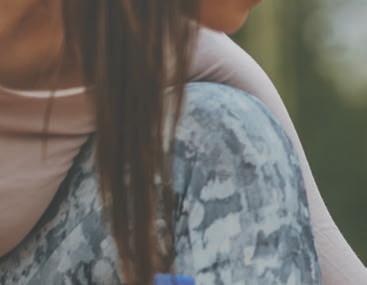
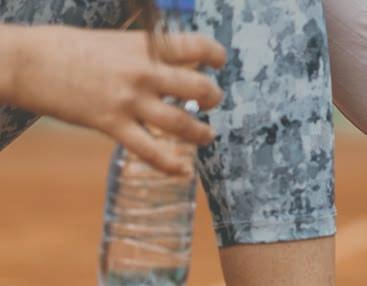
You’re invited! RSVP Required. Exclusive Specials, Music, Light Bites, Proaging Experts, Ra es & Giveaways! Follow us on Social Media for More Details!







































































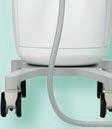

















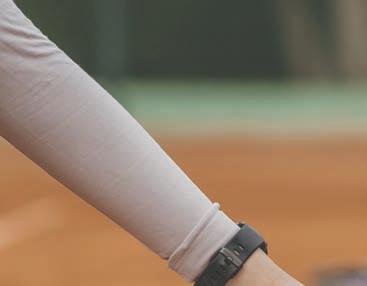
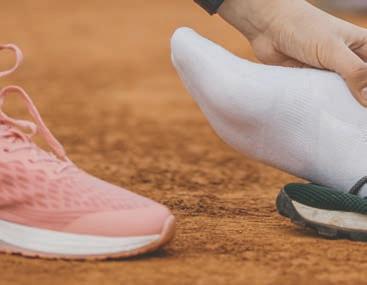

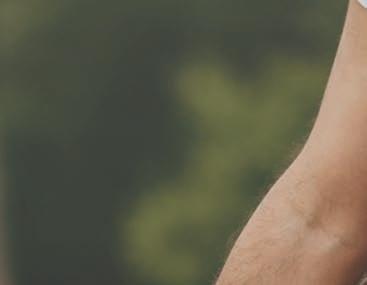
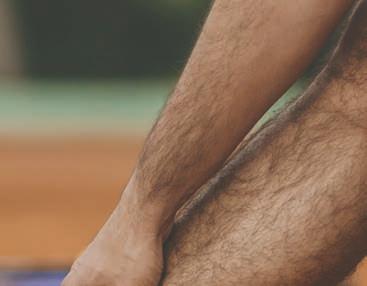



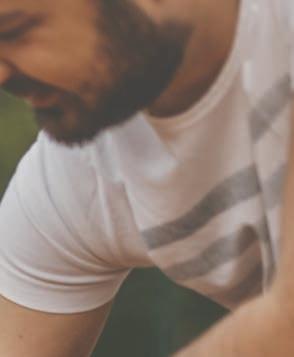
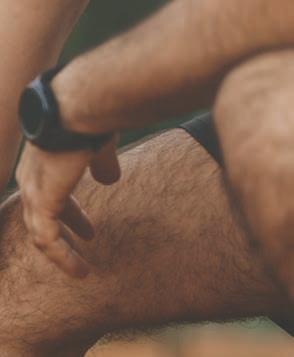



Thoughtfully designed for patient comfort and convenience
Thoughtfully designed for patient comfort and convenience
Offering a broad range of treatments and services on-site for patients with all forms of cancer and blood disorders:
Offering a broad range of treatments and services on-site for patients with all forms of cancer and blood disorders:
• Behavioral Health Therapy
• Genetic Testing
• Medical Oncology
• Pathology Lab
• Chemotherapy
• Behavioral Health Therapy
• Chemotherapy
• Clinical Trials
• Clinical Trials
• DigniCap ® - Cool Cap Therapy
• DigniCap ® - Cool Cap Therapy
• Genetic Testing
• Hematology
• Hematology
• Imaging
• Imaging
• Infusion Therapy
• Infusion Therapy
• Laboratory
• Laboratory
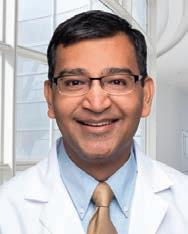

• Medical Oncology
• Non-oncology Infusions
• Non-oncology Infusions
• Nutrition Counseling
• Nutrition Counseling
• Oncolytic Pharmacy
– Rx To Go
• Oncolytic Pharmacy
– Rx To Go
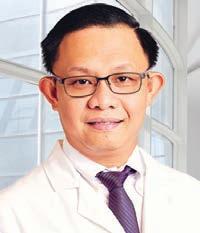

• PET/CT Scan
• Pathology Lab
• PET/CT Scan
• Radiology
• Radiology
• Targeted Therapy
• Targeted Therapy
• Telemedicine
• Telemedicine

